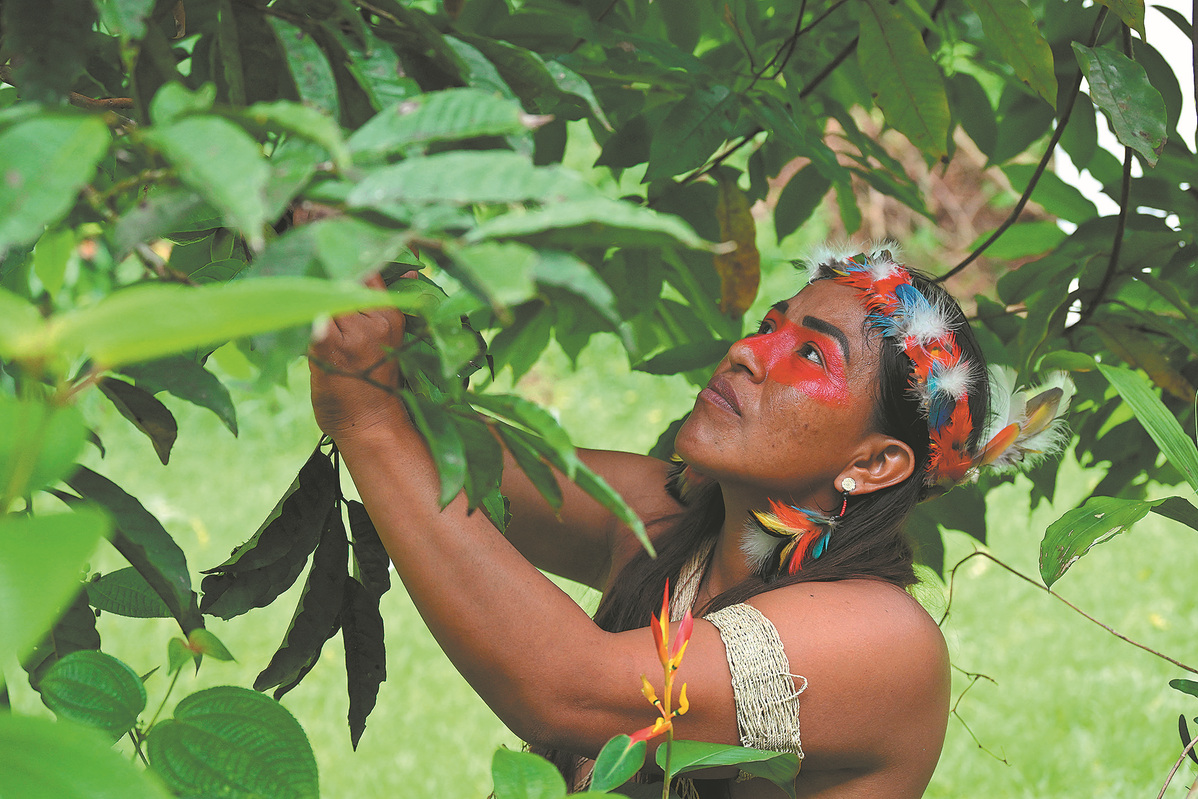
A Waorani indigenous woman in Guiyero, Ecuador, on Aug 27. RODRIGO BUENDIA/AFP
A thick slick of oil covers part of an estuary in the Ecuadorian Amazon, where the indigenous Waorani people are imploring authorities to stop drilling for the black gold that keeps spilling into their environment.
Petroecuador, a local oil company, admitted that an undetermined amount of oil leaked into the environment from one of its blocks, contaminating water sources in several towns and reaching the Napo River, a tributary of the Amazon River.
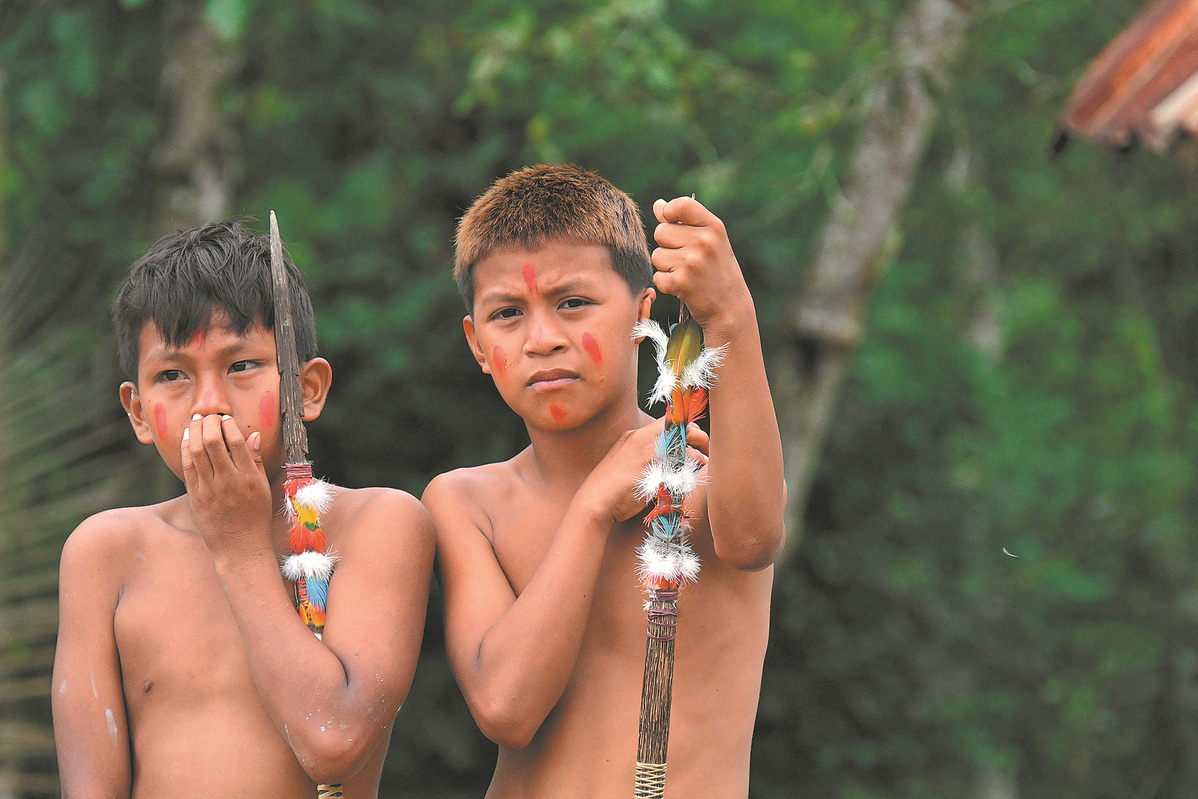
Waorani indigenous children in Guiyero, Ecuador, on Aug 27. RODRIGO BUENDIA/AFP
Black sludge also coats the vegetation alongside a road leading to the village of Guiyero in Yasuni National Park, one of the most diverse biospheres in the world.
"It's time to say enough! They've abused us," said Ene Nenquimo, vice-president of the Waorani Nationality of Ecuador, wearing a headdress of multi-colored feathers. The oil spill occurred in June, according to environmentalists, the latest of many in the reserve.
"Big lizards died," lamented Pablo Ahua, 44, one of the nearly 100 indigenous people who live in Guiyero, near one of the reserve's oil wells.
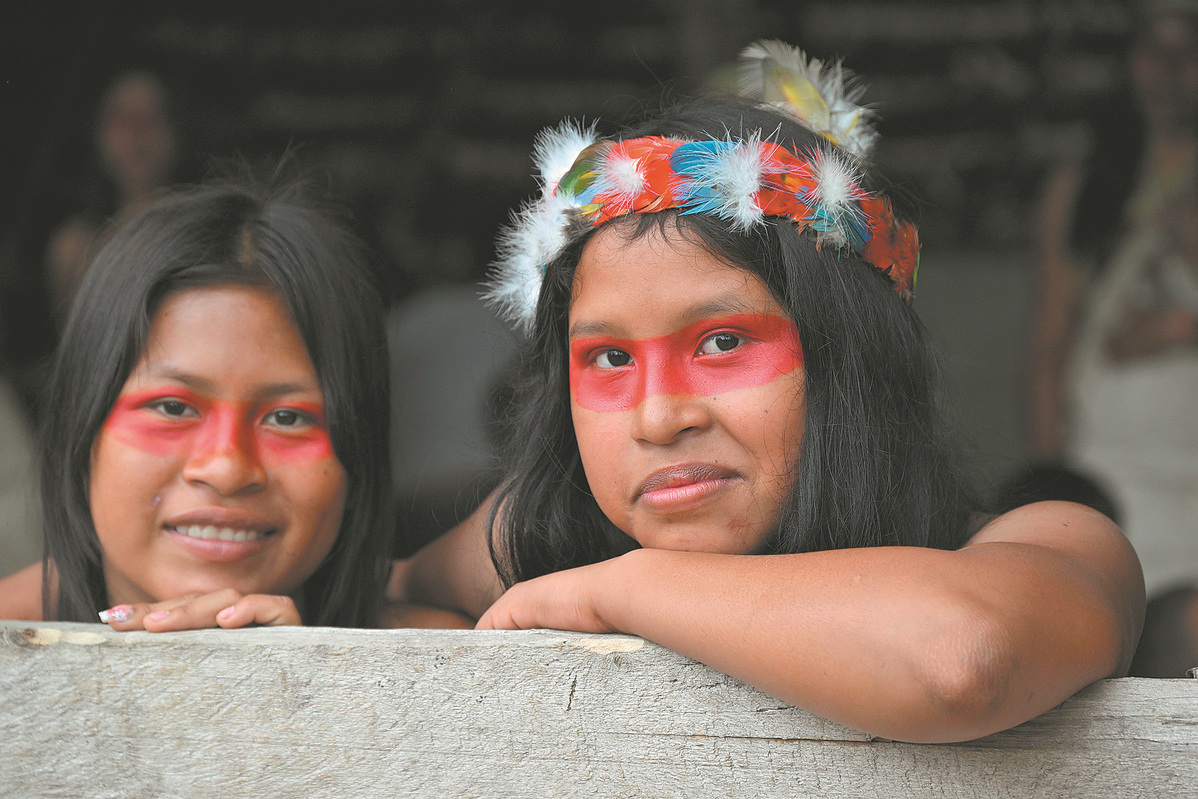
Waorani indigenous girls in Guiyero, Ecuador, on Aug 27. RODRIGO BUENDIA/AFP
Yasuni National Park was thrust into the international spotlight last year after Ecuadorians voted to stop drilling in one block in the reserve, a move hailed as a historic example of climate democracy. The reserve stretches over 1 million hectares and is home to at least three of the world's last uncontacted indigenous populations and a bounty of plant and animal species.
Local residents like Nenquimo want to stop all oil extraction in the reserve and elsewhere in the Ecuadorian Amazon. The oil spills leave "an immense impact that no one can remedy", Nenquimo said.
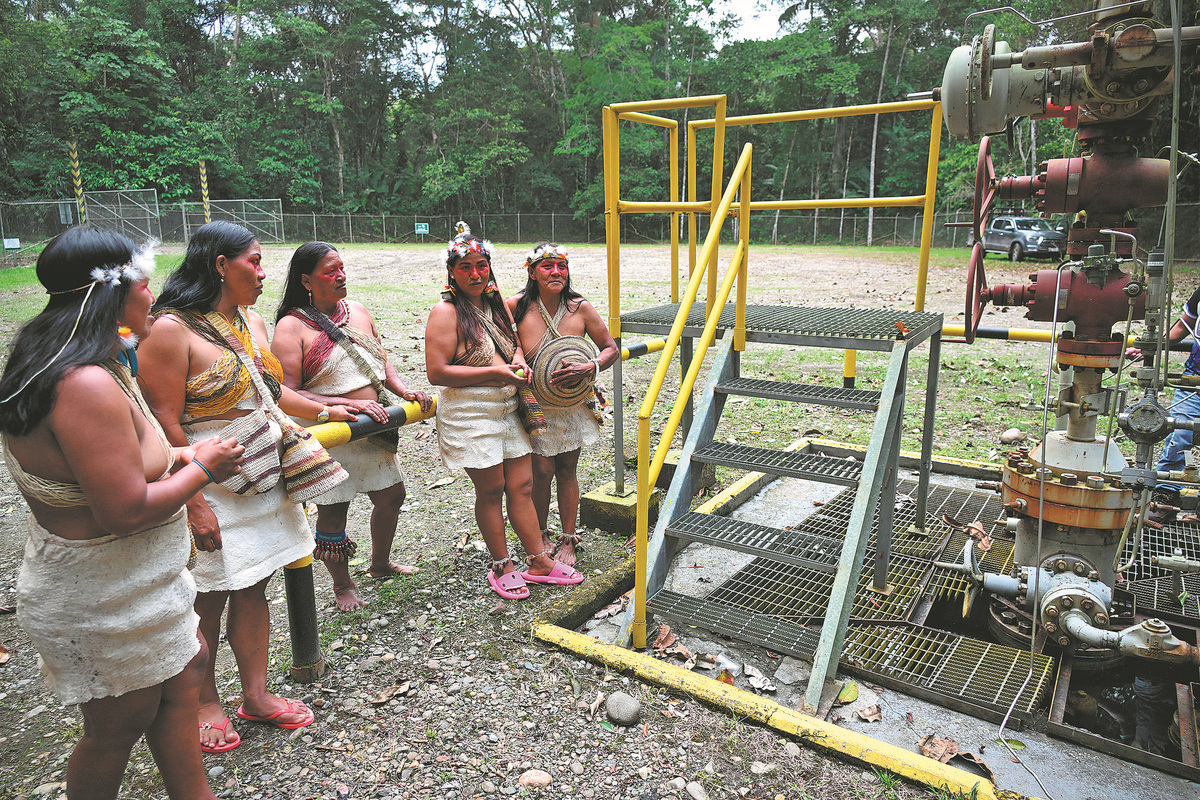
Waorani indigenous people visit an abandoned oil well near Guiyero, Waorani village, within the Yasuni National Park in Orellana Province, Ecuador, on Aug 27. RODRIGO BUENDIA/AFP
The government estimated that it will take at least five years to cut all production from the block, which produces 50,000 barrels a day, about 10 percent of the total output in the country.
In 2023, Ecuador estimated losses of $16.47 billion over two decades if it were to close Block 43 — one of 80 blocks in the part of the Amazon that falls in the country. Oil exploitation has been one of the pillars of Ecuador's economy since the 1970s.

Waorani residents at an abandoned oil well near Guiyero on Aug 27. RODRIGO BUENDIA/AFP
Crude oil, its leading export, generated revenues of $7.8 billion in 2023. Extreme poverty affects over 10 percent of Ecuador's population of about 17 million, with indigenous communities severely hit.
"We are not cared for, we are forgotten", due to the lack of essential services such as healthcare, Nenquimo said.
Agencies via Xinhua

Waorani indigenous people visit an abandoned oil well near Guiyero on Aug 27. RODRIGO BUENDIA/AFP

A view of the site of an oil spill near Waorani village in Ecuador's Yasuni National Park on Aug 27. RODRIGO BUENDIA/AFP
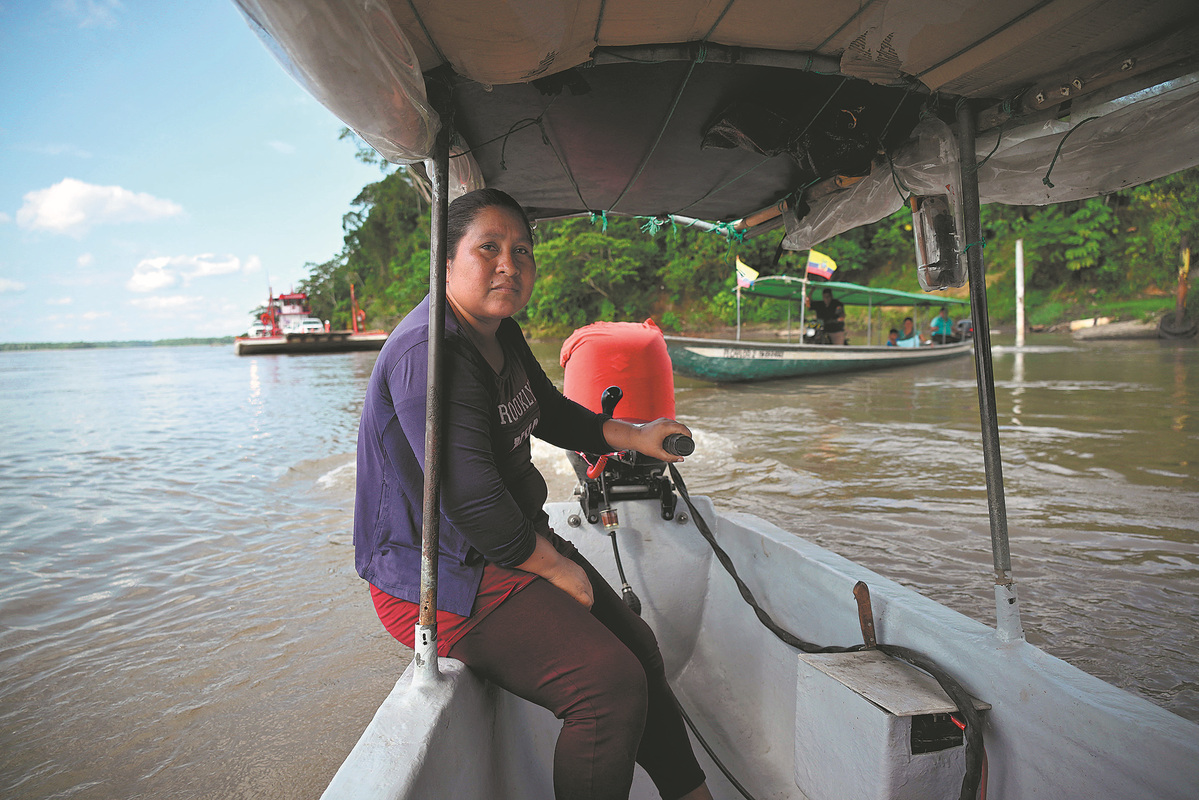
A woman steers a vessel on the Napo River at Puerto Pompeya in Orellana Province, Ecuador, on Aug 27. RODRIGO BUENDIA/AFP

Local residents disembark a vessel along the Napo River on Aug 27. RODRIGO BUENDIA/AFP

An aerial view of Waorani village at the Tiputini River in Ecuador's Yasuni National Park on Aug 27. RODRIGO BUENDIA/AFP